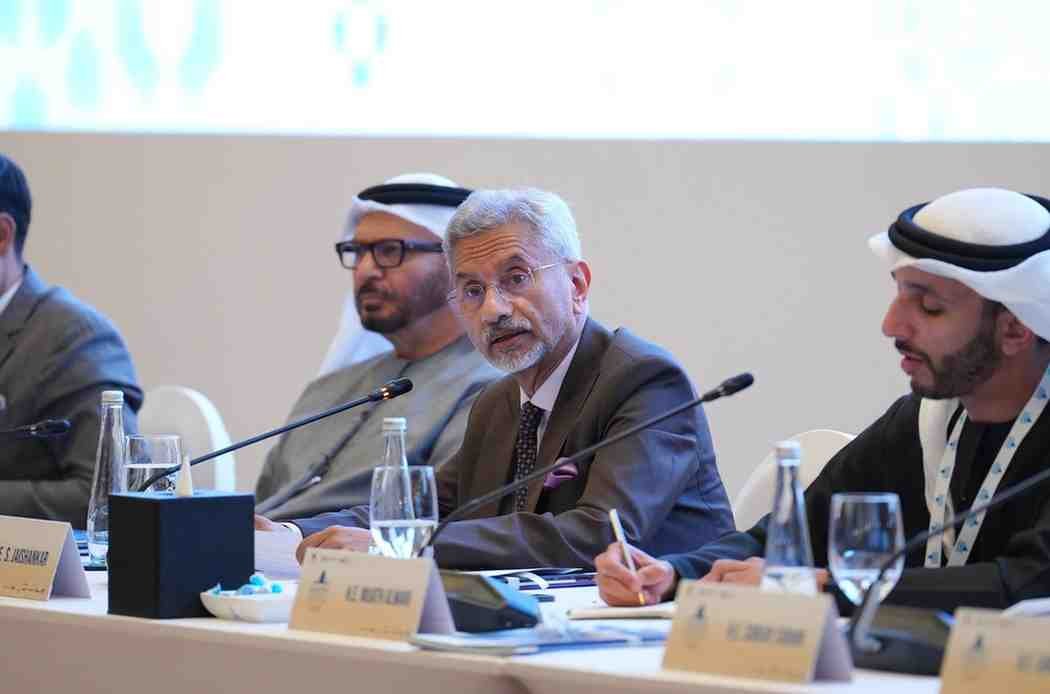Dr. S. Jaishankar, India’s External Affairs Minister, delivered a compelling address at the inaugural session of the Raisina Middle East conference, emphasizing the deep-rooted historical and strategic connections between India and the Middle East, which he referred to as West Asia. The event marks a significant expansion of the Raisina Dialogue, which originated in New Delhi, reflecting India’s growing engagement with the region.
In his remarks, Dr. Jaishankar recalled Prime Minister Narendra Modi’s vision a decade ago, which inspired the establishment of the Raisina Dialogue. He commended the organizers, particularly the Observer Research Foundation (ORF) and its president Samir Saran, along with their UAE partners, for bringing this important dialogue to the Middle East.
Dr. Jaishankar expressed confidence in India’s growing capabilities and its commitment to deepening ties with the Middle East. He reiterated that the region is an extended neighborhood for India, serving as a crucial passage to the world beyond, including Africa and the Atlantic. The Raisina Middle East initiative, he asserted, is a vital step toward fostering more frequent exchanges and conversations, ultimately contributing to a stronger partnership between India and the Middle East.
Dr. Jaishankar also underscored the historical ties between India and the Middle East, noting that commerce, culture, and ideas have intertwined for centuries. He pointed out that while India has influenced its neighbors, the West has had a profound impact on Indian society.
However, he acknowledged that post-independence, India’s economic development model led to a decline in these connections, particularly with its immediate neighbors. The past decade has seen a resurgence in these ties, particularly with the Gulf region, which is crucial for India’s strategic interests.
The minister highlighted the significance of the Gulf, where India maintains a robust trade relationship valued at approximately USD 160-180 billion annually. He noted that while energy trade is a prominent aspect, India’s presence in the Gulf extends to various sectors, including technology, education, and health. With over 9 million Indians residing and working in the Gulf, the region serves as a vital gateway to the broader Middle East and Mediterranean, where India also has substantial trade interests.
Dr. Jaishankar emphasized the importance of restoring dialogue among thinkers, policymakers, and strategists from both regions, which has diminished over the years. He articulated that the Raisina Middle East initiative aims to rekindle these conversations, fostering a shared agenda to address common challenges and seize opportunities.
In the context of a rapidly changing global order, Dr. Jaishankar outlined several key trends influencing international relations. He noted the shift in U.S. foreign policy, the competitive dynamics between the U.S. and China, and the growing emphasis on resilient supply chains. He also highlighted the increasing importance of digital technology and the need for trust and transparency in international dealings.
The minister pointed out that the current global landscape is characterized by a pushback against the imposition of universal norms that often undermine national traditions and governance. This resistance is reshaping how societies govern themselves and engage in international relations, particularly in the Indian subcontinent and the Middle East.
Dr. Jaishankar called for a collaborative approach to address pressing issues such as food and health security, manufacturing diversification, and technological advancements. He noted that India and the Middle East are already collaborating on projects related to green hydrogen and ammonia, as well as exploring new forms of connectivity and educational partnerships.
As he looked to the future, Dr. Jaishankar stressed the importance of accurately interpreting emerging trends, particularly the perception in the U.S. that its potential has been hindered by external factors. He warned that the competitive nature of global affairs may overshadow collaborative efforts, making it essential for nations to find common ground and work together on specific agendas.
Connectivity emerged as a critical area for cooperation, with Dr. Jaishankar highlighting the need to re-engineer the flow of goods and services disrupted by historical colonialism and recent global challenges. He mentioned ongoing initiatives like the International North-South Transport Corridor (INSTC) and the India-Middle East Economic Corridor (IMEC) as vital projects that could enhance regional connectivity.
The minister also addressed the importance of maritime security and the need for collaborative mechanisms to address humanitarian assistance and disaster relief (HADR) situations. He emphasized India’s commitment to playing a significant role in these areas, while also encouraging partnerships among Middle Eastern nations.
As the inaugural session of Raisina Middle East unfolds, it sets the stage for a renewed dialogue that promises to enhance cooperation and understanding between these historically intertwined regions, paving the way for a more collaborative future.








